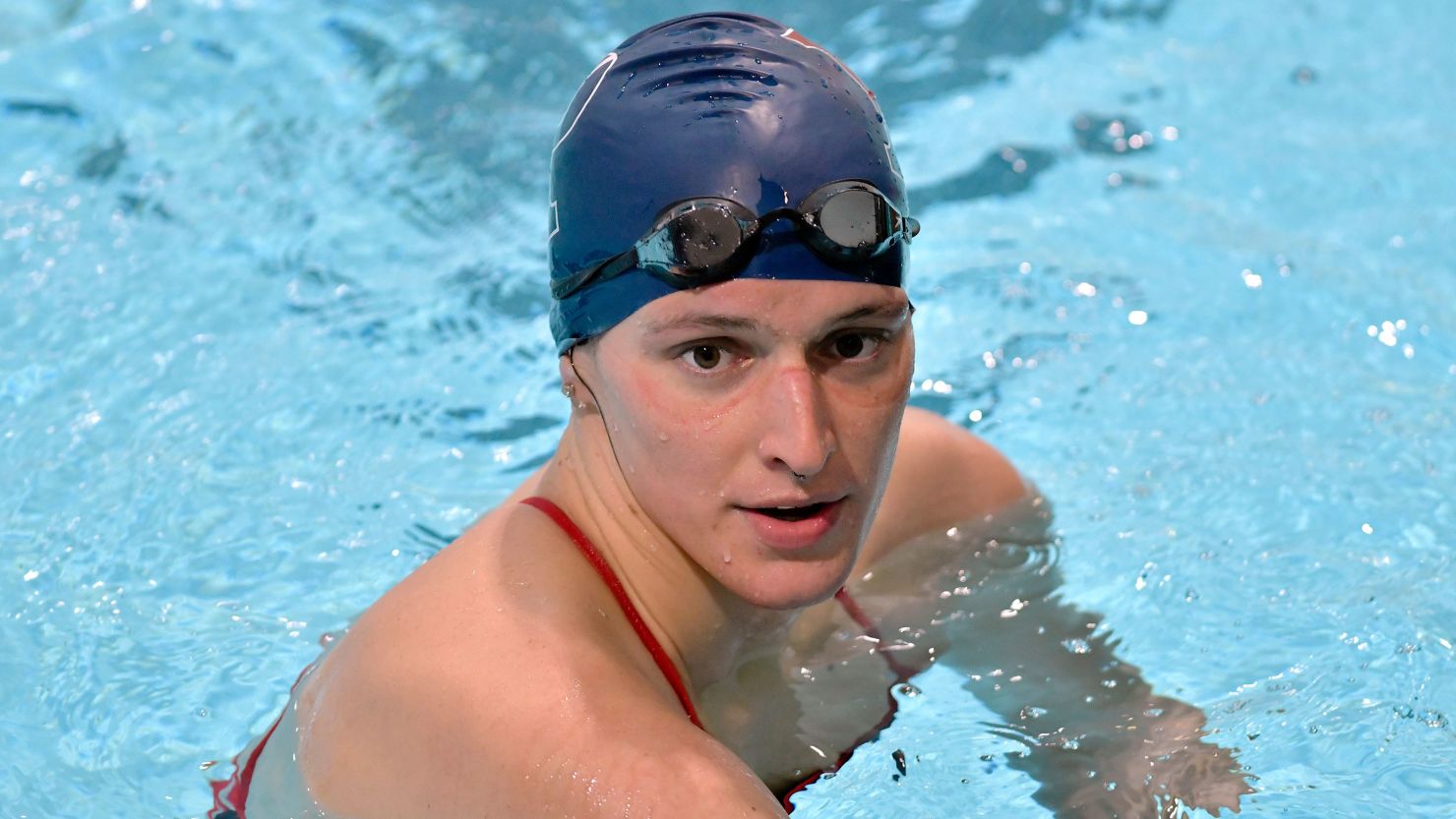Transgender swimmer Lia Thomas begins legal case against swimming’s world governing body

Transgender swimmer Lia Thomas has begun legal proceedings against World Aquatics, swimming’s governing body, after it voted to restrict transgender athletes from competing in elite women’s aquatics competitions, according to the Court of Arbitration for Sport.
The swimmer is challenging certain parts of the World Aquatics’ gender inclusion policy, which went into effect on June 20, 2022, according to the international court body.
Thomas’ legal focus aims to overturn the policy that dictates male-to-female transgender athletes would only be eligible to compete in the women’s categories if they transition before the age of 12 or before they reach stage two of the puberty Tanner Stages.
“Ms Thomas accepts that fair competition is a legitimate sporting objective and that some regulation of transgender women in swimming is appropriate,” the court stated Friday in a news release.
“However, Ms Thomas submits that the Challenged Provisions are invalid and unlawful as they discriminate against her contrary to the Olympic Charter, the World Aquatics Constitution, and Swiss law including the European Convention on Human Rights and the Convention on the Elimination of All Forms of Discrimination against Women,” the release said. “… and that such discrimination cannot be justified as necessary, reasonable, or proportionate to achieve a legitimate sporting objective.”
World Aquatics oversees aquatic competitions in swimming, water polo, diving, artistic swimming, open water swimming and high diving.
CNN has reached out to World Aquatics for comment.
The policy also says athletes who have previously used testosterone as part of female-to-male gender-affirming hormone treatment would only be eligible to compete in women’s competitions if the testosterone was used for less than a year in total, the treatment didn’t take place during puberty and testosterone levels in serum are back to pretreatment levels.
At the time, the governing body promised to establish a new working group in order to develop open category events for athletes who do not meet the criteria for men’s or women’s categories.
In August, World Aquatics created an open category for transgender athletes at a World Cup event in Berlin in October for “all sex and gender identities.”
“For this inaugural event, the emphasis is on gaining further experience for future development and celebrating diversity,” according to swimming’s international governing body.
CNN has reached out to Thomas for comment through her lawyer.
When asked Friday about Thomas’ case against World Aquatics, Danne Diamond, director of policy and programs for Athlete Ally, an advocacy group which works to end homophobia and transphobia in sports, told CNN: “World Aquatics’ transgender policy causes profound harm to trans women, who are particularly vulnerable in society and suffer from high rates of violence, abuse, and harassment in society and in sport.”
“The ban is not a fair, proper, or reasonable balancing of rights,” said Diamond. “It is grossly disproportionate and has the effect of excluding virtually all trans women athletes from international aquatics.”
The court said a hearing date for Thomas’ legal challenge has yet to be set.
Thomas became first trans athlete to win an NCAA Division I title
The debate on transgender women in swimming, which led to the new gender inclusion policy and open category, came under a spotlight when Thomas, a University of Pennsylvania swimmer who started on the school’s men’s swimming team in 2017, eventually joined the UPenn women’s team in 2020.
At the time of her transition in 2019, the NCAA required transgender athletes to have one year of hormone replacement therapy to be cleared to compete.
In February 2022, 16 members of the University of Pennsylvania’s swim team sent a letter to the university and the Ivy League asking them to not challenge the NCAA’s new transgender athlete participation policies which would prevent Thomas and other transgender athletes to compete.
In the letter, they argued Thomas had an “unfair advantage,” and said they supported her gender transition out of the pool but not necessarily in it.
Despite the backlash, Penn Athletics and the Ivy League maintained their support for the transgender swimmer, and over 300 current and former swimmers signed their names to an open letter defending her ability to compete.
As a swimmer on the women’s team, Thomas became the first transgender athlete to win an NCAA Division I title after winning the women’s 500-yard freestyle event in March 2022.
Advocates of banning transgender women from women’s sport have argued transgender women have a physical advantage over cisgender women in sports.
But the mainstream science does not support that conclusion. A 2017 report in the journal Sports Medicine which reviewed several related studies found “no direct or consistent research” on trans people having an athletic advantage over their cisgender peers, and critics say the bans add to the discrimination trans people face.





